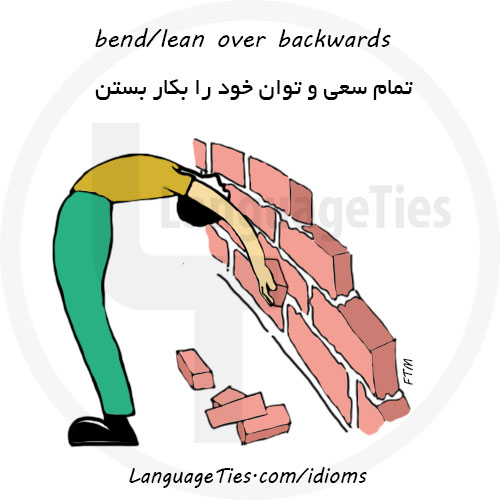be only/just a matter of time
If it is (only) a matter of time until something happens, it is certain to happen but you do not know when it will happen
It's only a matter of time before they bring out their own version of the software.
If it is (only) a matter of time until something happens, it is certain to happen but you do not know when it will happen
It's only a matter of time before they bring out their own version of the software.
able to be trusted
Many people do not see politicians as trustworthy.
Not usually talking about or making obvious your own abilities and achievements
He's very modest about his achievements
If something is slippery, it is wet or smooth so that it slides easily or causes something to slide
Snow and ice have made roads slippery.
Showing good judgment
Sian had very wisely left the party before all the trouble started.
To try very hard to do something

تمام سعی و توان خود را بکار بستن
My best friend, Jacob, is having financial problems, I’ll do everything I can to help him. I will truly bend over backwards for him.
To earn money which is only enough to cover your expenses

Sara gets a descent salary, bust she has to be careful about extra expenses to make both ends meet.
too willing to believe that someone is telling the truth, that people's intentions in general are good, or that life is simple and fair. People are often naive because they are young and/or have not had much experience of life
don't be so naive!
an accident that happens when two vehicles hit each other with force
Two drivers were killed in a head-on (= direct) collision between a car and a taxi last night.
a short sleep, especially during the day
Grandpa usually has/takes a nap after lunch.